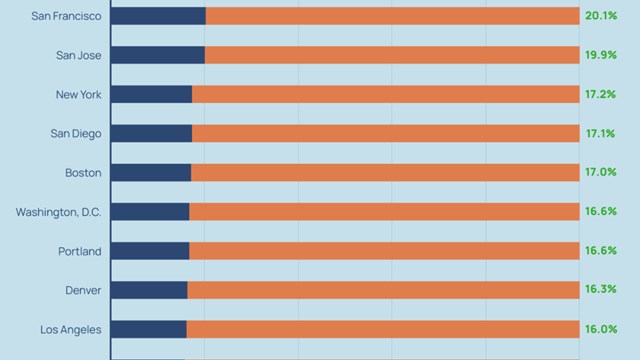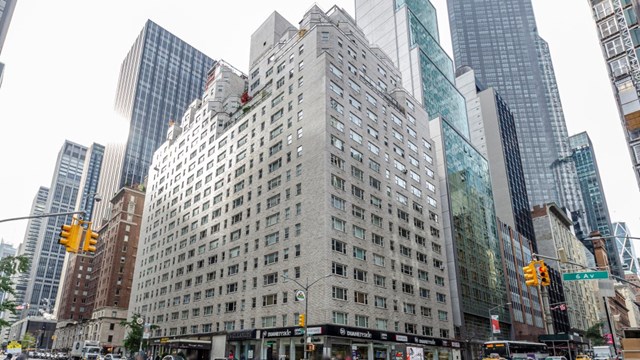In the unfortunate and troubling event that you suspect incompetent - or even criminal - behavior regarding your building finances, an accountant or a certified fraud examiner can forensically investigate the issue to determine whether or not mismanagement or possibly criminal wrongdoing is present. The question of whether or not a fully certified fraud examiner should be brought in depends upon the amount of damage, what kind of legal action will be taken, and whether or not losses can be recouped; after that, there remains the task of shoring up your building's defenses against fraud to see that it doesn't happen again.
Although most frauds start out small, most first-time offenders become repeat offenders and leave telltale signs of their actions. While the overwhelming majority of managing agents are ethical, trustworthy professionals with few concerns greater than the welfare of the building communities they oversee, when financial misappropriations occur, they often begin with the agent. This is largely attributable to the confluence of opportunity to commit the act, pressure to commit it, and rationalization for it both before and after the deed is done.
Following suspicion of fraud or mismanagement, the source of the problem must be identified. "It generally [involves] the purchasing of services or supplies, and it's really hard for a board member to detect it," unless the board member is involved on a daily basis, according to Stephen Beer, a partner with Czarnowski & Beer, a Manhattan-based accounting and auditing firm. He recommends reviewing invoices and receipts when something doesn't look right.
Bank reconciliation can also reveal fraud. "That's very detailed, and it's something the treasurer might do, but that's another place where you might see [fraud]"¦ if someone took money out of the accounts," Beer explains. He says that after supply ordering, the areas most subject to theft are accounts that have had money taken out, kickbacks - as was the case in the management scandals of the late 1990's - or inflated prices for goods and services.
According to some in the field of fraud prevention and forensic auditing, sometimes the original glitch is so far removed from the building itself, it's almost impossible to detect through the usual means. For example, if a building super or manager is allotted a certain amount of money with which to order supplies for the building, and instructed to purchase top-of-the-line, grade-A goods, they'll most likely go and do just that. But if the vendor who sold the building representative those goods substitutes substandard product for what was initially ordered - yet still charges the grade-A price - the building has been defrauded, yet no evidence of such will appear on any receipts, and no one will be the wiser unless problems arise because of the shoddy goods. There are two ways fraud of this nature can be detected: first, by educating the people purchasing goods for the building about what it is they're buying and how to tell that it is in fact what they ordered; and second, by having the building itself physically examined by someone with the knowledge and experience to tell top-quality materials, goods, and workmanship from something less.
Physical "audits" are particularly important when capital improvements are afoot - having a construction manager or foreman on-site while work is underway is one way of making sure that quality materials are being used as per the contract, and that the labor being used on the project is skilled and legal.
After identifying their vulnerability, a board must take steps to protect themselves and their building community from further financial damage. "The best way"¦ is a good internal control structure," Beer says. "And we always say that an involved board is the most important internal control that you can have." A potential thief, he says, picks an uninvolved building. Boards that are on top of expenses, involved in bill approval, and sign the checks personally have a better chance of preventing fraud.
Beer says "It's a process of monitoring - what we call a segregation of duties - that with different people involved, means there's less chance that something's going to go wrong." The agent, building staffer, or board member who's left entirely to his or her own devices, he warns, is more likely to go astray than one who must account for their expenditures, withdrawals, or other financial transactions.
According to Larry Vitelli, senior vice president with Douglas Elliman Property Management (formerly Insignia), nobody should be working in a vacuum. "Normally, the super should not order supplies directly. He should requisition the supplies he needs, the account executive should approve the requisition, and the purchasing department of the management company should do the ordering."
Often, the first time someone defrauds their building, they rationalize it by telling themselves it's a victimless crime, and that they'll put the money back. After they get away with it once, says Beer, they think they won't be caught. And if conditions are right for a managing agent, vendor, or staff member to get away with it once, chances are they will do it again, to the eventual detriment of the building.
One group taking steps to ensure open communication and transparency at every point in the management/ board relationship is the New York Association of Realty Managers (NYARM). According to Margie Russell, NYARM's president, "NYARM's code of ethics is the topic every month before our membership meeting, we spend an hour discussing it - and it's not just "˜Do Not Do,' and "˜Thou Shalt Not;' we work to give our members the tools to avoid sticky situations. Most people want to do the right thing, but appreciate discussion about the many nuances involved in making the right choice."
Aside from identifying the opportunity and temptation, accountants must also determine exactly where and how the fraud was committed. "Usually, we go in and gain an understanding of what the issue is," Beer says. After that, he continues, examiners look for unusual changes in relationships. In a case of recurring fraud, it's easy to compare the numbers to what the budget was, but if fraud existed in the year before, the budget can contain and hide the wrongdoing. "First you have to see what's happening," Beer says. "The biggest tool we have are what we call analytical evaluations - where is the thing that seems to be the most out of whack?"
"When a problem is first identified, if it is significant, or if the materiality of the problem is unknown, that's the time to call someone in to go through the current year and the past years and see the extent and the nature of the fraud," says Carole Newman, a partner of Newman, Newman & Kaufman, LLP, an accounting firm specializing in co-ops and condos based in Syosset, Long Island. "It should be dealt with immediately."
From there, an investigating accounting firm can go to an outside source like the Council of New York Cooperatives and Condominiums (CNYC), which does an annual study of a building's operating costs. Auditors can compare what the building should have as expenses, based on the council's guide, and then find the areas "that seem to be out of whack," Beer says. Observation is the second-best method, and involves things as simple as examining documents for telltale signs of tampering.
Missing documents, or copies of documents instead of the originals are hallmarks of fraud. Other red flags include missing phone numbers on bills, or phone numbers that are wrong or lead to disconnected lines. Beer also recommends looking at the date on which the vendor cashes a check. "Most of the big vendors use a stamp that has the name of the company and their account number," he says. "When somebody handwrites the endorsement, [that could indicate fraud.]"
Duplicate payments on an invoice and journal entries made by someone other than a bookkeeper or the primary accountant without a solid explanation are additional reasons for concern, and can be indicative of someone trying to cover up fraudulent practices before the annual audit.
The question as to whether to involve an accountant or a certified fraud examiner is a matter of amount in question and how far you want to take an investigation. Accountants can perform a forensic audit, but a certified fraud examiner becomes necessary when going to trial or bringing criminal charges.
"A forensic auditor usually has special training," says Newman. "Regular financial statement auditors are not fraud investigators - they may not have the ability to appropriately interview a potential suspect." In addition, she adds, they may not have the investigative skills to obtain the kind of substantive evidence that is necessary to make charges of negligence or criminal intent stick.
That evidence, she continues, can be procured through interviews, testimonials, and even polygraph tests. Other techniques include searches of public records and the close examination of documents and sections of contracts and leases. "It could involve inventory counts, inspections, and even covert operations, where you might investigate a suspect's financial status," Newman says. "There would be an investigation of unauthorized overtime, the status of employees, and determining if terminated employees are still on the payroll."
Some auditors point out that if a building finds evidence of a small fraud, they opt not to spend the money on a certified fraud examiner. In many cases, the person pays back what they've taken and is terminated, and the matter drops. "No one wants it out there that they had a problem," Beer points out. However, he adds, "I believe that if you're going in front of a jury or a judge, you're going to want to have a certified fraud examiner."
Regardless of what level of certification your financial advisor has attained, your board should always feel that they're working on your side, in the best interest of your building. According to Vitelli, "A board should always feel comfortable with their accountant. They should be able to pose questions to him or her during the year and ask him or her to look more closely at occasional bills that the board may be unsure about. The board should ask their accountant to give them an idea of how their expenses compare with those of similar buildings and, if certain areas are way off, they should have them look into it or consider a forensic accountant if they are not satisfied with the answer."
Mishandled books - whether deliberate or simply negligent - generally are reported to the police, who may or may not act upon the claim, depending on the amount involved and the situation. The money itself - which usually has already been spent - is not easy to recover. After that, the board must consider either dismissing the individual responsible, or allowing them another chance, if they feel the issue was an isolated incident.
Most pros agree that fraud generally is kept quiet unless it comes out in the press or the building's grapevine. Doing otherwise only creates an atmosphere that's not conducive to the management of the building.
"It won't necessarily lead to a criminal investigation," Newman confirms. "A lot of it depends upon whether or not the person who committed the fraud is willing and has the ability to make restitution." However, she adds, it's something for a board and their attorney to decide. She says it depends on what is found and the nature of the fraud.
Other times the matter can be a simple case of mismanagement, which, says Beer, "is generally quite obvious to an auditor, because we look at the internal control structure." In that case, he continues, there either won't be such a structure in place, or there'll be an intentional disregard for it.
"I think everyone makes errors, and auditors find errors all the time through a regular audit," Newman says. She says most times those errors, when found, are brought to the board's attention and quickly corrected.
Your management firm's internal control structure can help mitigate malpractice. An involved, fully engaged board makes all the difference in locking out fraud, mismanagement, and negligence. That, the pros say, is what their firms try to impress upon the boards they serve. "They really need to be as involved as they can," says Beer.
For her organization's part, Russell feels that change may be coming, even slowly. "A cultural change has occurred in the property management industry in the last few years," she says. "At NYARM, we have suppliers and contractors coming regularly to our monthly ethics meetings, along with the property managers. It's great to be able to talk with them and communicate the fact that by working through these issues together we can make each other's job easier. People begin to realize that, from an ethical standpoint, the old ingrained ways of doing business aren't necessarily the best."
Vitelli points out that since the scandals of the late 1990's, "Board treasurers are generally more involved in overseeing the fiscal operation of their building. Many boards have lower spending limits for the managing agent to process invoices without board approval. For all the boards diligence though, the independent accountant is a very important line of defense against dishonest managing agents."
Newman adds that by streamlining and maintaining tight internal controls, keeping on top of the books, and asking plenty of questions about where the money's going, your building can avoid becoming a residential Enron.







Leave a Comment